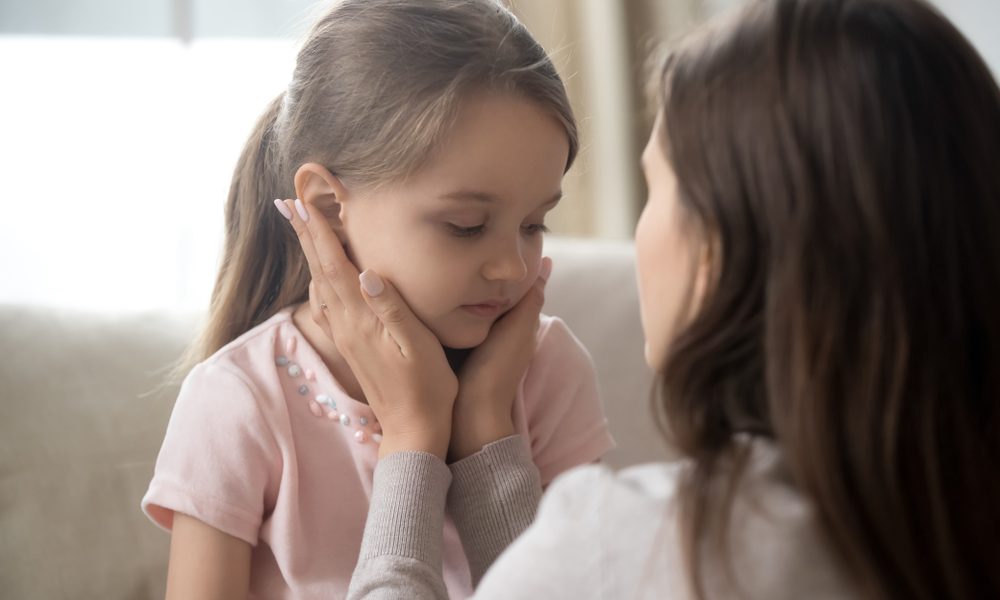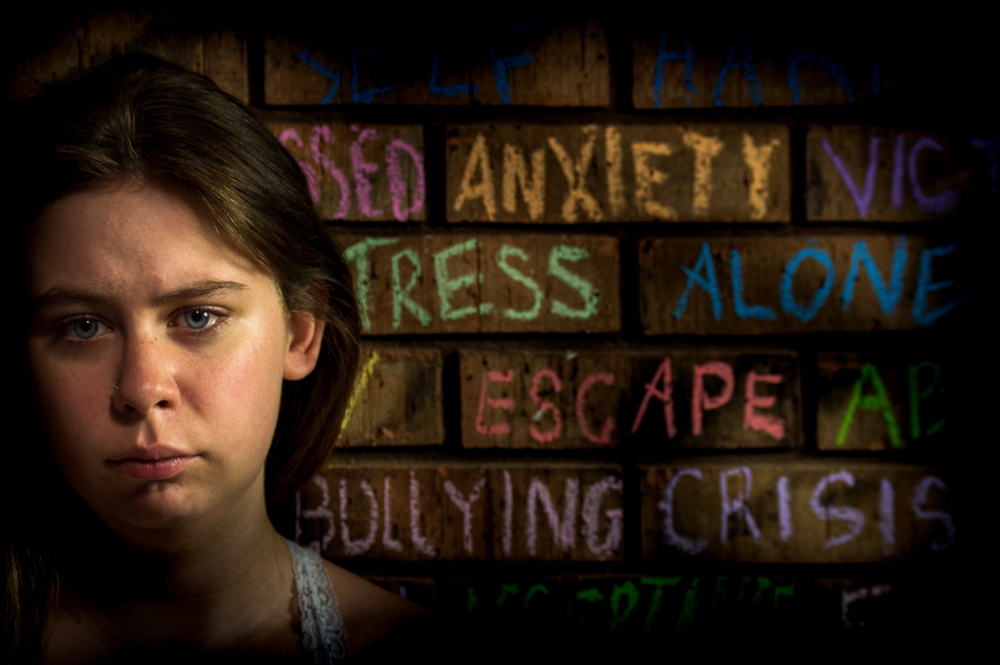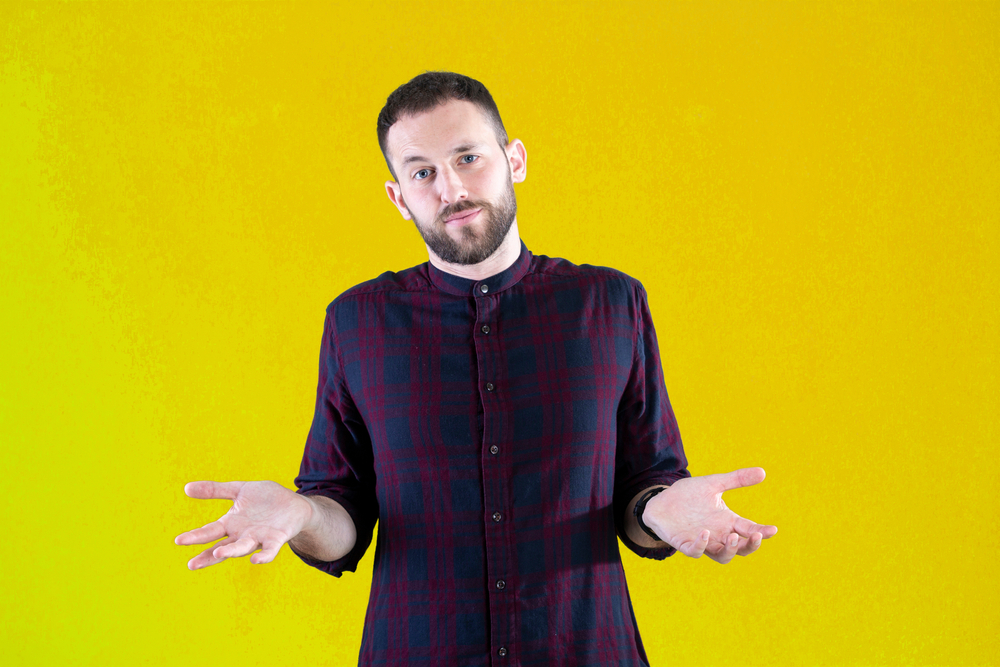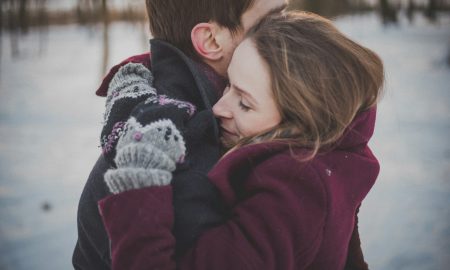
Childhood Emotional Trauma Can Affect You As An Adult

Children who witness violence by their caretakers or physical neglect during their early growing years will exhibit the signs of trauma as adults. Children have a different mechanism to understand the meaning of the events they witness and experience. The definition they draw helps them to cope with the trauma during their growing years. However, they could face problems as adults if they don’t change their old way of thinking, and this may damage their functionality as adults.
Emotional trauma emanating from childhood has a number of effects. In this article, we will look at how childhood emotional trauma can impact one as an adult.
[su_quote class=”cust-pagination”]“The greater a child’s terror, and the earlier it is experienced, the harder it becomes to develop a strong and healthy sense of self.” ― Nathaniel Branden [/su_quote]
Children Create A False Sense Of Belief In Themselves

ambrozinio/Shutterstock
Childhood trauma therapists have observed numerous patients who carry emotional wounds from childhood into adulthood. The wounds reveal themselves because they are created by a false self-belief.
Children expect loved and care from their parents. When parents do not respond according to their thoughts, they try to change their behavior to draw attention from their parents— they bury the feelings they have in their mind to create a false self to get their needs met. They bury their emotions and lose touch with who they are because their feelings are an integral part of themselves.
Also, they lead a terrified life believing they will no longer be cared for, loved, or accepted if they drop the mask. Adults who encounter this problem must talk to a therapist who specializes in childhood trauma to help them reconnect with their feelings and express their emotions. This will make them feel safe and whole.

Neal Bryant/Shutterstock
The Thinking Of Victimhood
When children are victimized, they develop certain beliefs that drive their self-talk. The way they talk to themselves empower or disempower them. Any kind of negative self-talk disempowers them, leading them to believe they have no control over their lives. As such, they begin to feel like victims. They don’t realize that their victimhood during childhood doesn’t follow them into adulthood.
Rather than consider themselves victims of childhood trauma, these children should look at themselves as survivors. Whenever they feel trapped or choiceless, they should remind themselves that they are more and have better control than they believe.

Carlos Banyuls/Shutterstock
Passive Aggressiveness
Children that grow up in families where unhealthy expressions of anger are the norm of the day believe that anger is socially acceptable. Those who witness anger being expressed violently may begin to believe as adults that anger is an expression that must be suppressed. People who witnessed anger being suppressed during childhood may continue with this habit even in their adult lives and suppress their anger instead of expressing it.
When an adult is unable to express his or her anger, they remain angry constantly for no reason. Since they are unable to express their feelings in a straightforward manner, they begin to express their feelings through passive aggressiveness.
[su_quote class=”cust-pagination”]“Childhood trauma does not come in one single package.” ― Asa Don Brown [/su_quote]
Passivity

YAKOBCHUK VIACHESLAV/Shutterstock
Children who were neglected and abandoned by their caretakers or parents may have buried their fear and anger with the expectation that it may never happen to them again. When children develop passivity, they begin abandoning themselves. As adults, they live a passive life and generally do not live to their full potential.
The emotional trauma people experience during childhood makes them bury their feelings in a way that can be damaging. They learn to hide parts of themselves, but the situation changes dramatically when they become adults because they need to express their feelings and receive the guidance for becoming the people they want to be.
More in Mind & Mental
-
`
Mental Health Awareness Festival: A Celebration of Well-being Through Physical Activity
The Mental Health Awareness Festival is just around the corner. It is set to take place this Sunday, October 6, 2024,...
October 11, 2024 -
`
Celebrate Pumpkin Season – Your Guide to Fall’s Favorite Fruit
As the vibrant colors of fall begin to appear, there’s one thing that truly signifies the start of the autumn season—...
October 2, 2024 -
`
4 Timeless Greek and Roman Views on Mental Health in Ancient Rome
In the bustling streets of ancient Rome and the philosophical circles of Greece, mental health was a topic of great interest...
September 27, 2024 -
`
Why Deleting Social Media Forever CAN Be a Sign of Depression!
Today, social media has become a huge part of our lives. We scroll through endless feeds, share moments, and stay connected...
September 19, 2024 -
`
Some First Date Night Ideas That Are Surprisingly Cheap
Looking for cheap date night ideas that won’t break the bank but still impress your date? Whether it is your first...
September 14, 2024 -
`
Where to Vacation in December for a Memorable Holiday?
As December rolls in, travelers are faced with a myriad of choices for a perfect holiday escape. If you’re wondering where...
September 4, 2024 -
`
What Is a Personal Mantra and Tips to Develop Yours in Minutes
Are you feeling stuck or overwhelmed? It’s easy to lose focus when life gets challenging. But what if a simple phrase...
August 30, 2024 -
`
How to Control Anger – Practical Tips and Techniques
Anger is a complex emotion that everyone experiences from time to time. It can arise from a variety of triggers and,...
August 23, 2024 -
`
How to Tell if a Bipolar Man Loves You – Key Signs and Indicators
Relationships, especially those involving someone with bipolar disorder, can be challenging but rewarding. The highs and lows characteristic of bipolar...
August 15, 2024















You must be logged in to post a comment Login